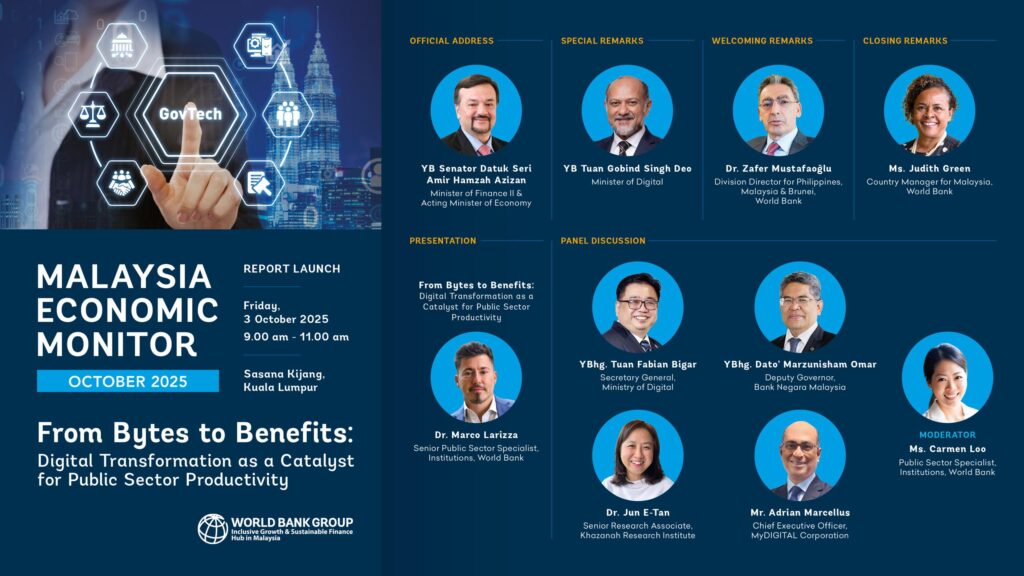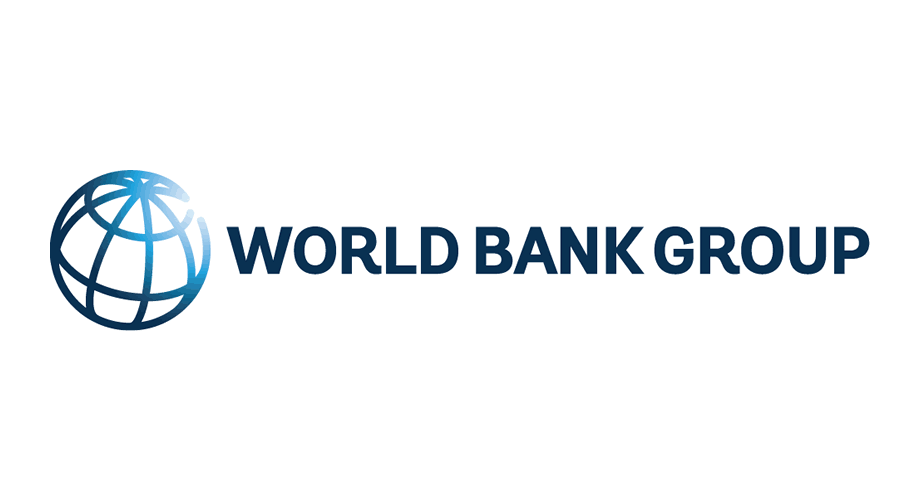Malaysia Sets the Benchmark for Digital Government

Malaysia’s growing investment in Government Technology (GovTech) is redefining how citizens experience public services. The World Bank’s new report, “From Bytes to Benefits: Digital Transformation as a Catalyst for Public Sector Productivity”, identifies digitalisation as a key driver of national growth and government efficiency.
With MyGovCloud, MyDigital ID, and wider data integration, Malaysia has positioned itself as a regional leader in Southeast Asia’s digital transformation. These initiatives enhance transparency, cut inefficiencies, and create new opportunities for private sector growth.
Civil Service at the Core of Digital Reform
The report draws on Malaysia’s largest-ever survey of digital readiness within the civil service. The findings reveal a strong foundation for nationwide digital reform.
“Malaysia is setting an example for the region on how GovTech can drive productivity and build trust between citizens and government.,” said Zafer Mustafaoğlu, World Bank Division Director for the Philippines, Malaysia, and Brunei. “The World Bank is committed to supporting Malaysia in its journey to enhance government efficiency, which will enable private sector growth and higher quality jobs for Malaysians.”
Strengthening Growth Through Digitalisation
Malaysia’s economy continues to demonstrate resilience amid global uncertainty. While domestic demand fuels expansion, external challenges still weigh on exports. Therefore, digital transformation is essential to sustain momentum and enhance productivity across all sectors.
“Digitalization will play a pivotal role in enhancing the efficiency of our public institutions, improving the accessibility and delivery of government services and unlocking new avenues for economic productivity and innovation,” said YB Senator Datuk Seri Amir Hamzah Azizan, Minister of Economy. “The Government is working to ensure that no Malaysian is left behind in this digital journey.”
Four Pillars of a Digital Future
The World Bank highlights four reform areas that can accelerate Malaysia’s digital progress:
- Platforms – Build integrated systems that streamline operations and simplify access.
- Policies – Strengthen governance and ensure consistent implementation.
- People – Upskill the workforce to adapt and innovate.
- Participation – Create citizen-focused services that promote inclusivity.
“The next priority is to strengthen digital skills, modernize data policies, enforce regulations and expand participation so that every Malaysian feels the benefits of digital transformation in their daily lives,” said YB Gobind Singh Deo, Minister of Digital. “Malaysia’s digital journey is about adopting new technologies and creating a government that is inclusive, responsive, and trusted.”
Leading ASEAN’s Digital Future
With a clear vision and cohesive strategy, Malaysia is poised to lead ASEAN in GovTech innovation. Continued collaboration between government, industry, and global institutions like the World Bank will translate digital progress into long-term growth and social inclusion.
Ultimately, Malaysia’s digital strategy goes beyond technology. It aims to empower citizens, enhance transparency, and build a smarter, more responsive government for the future.









